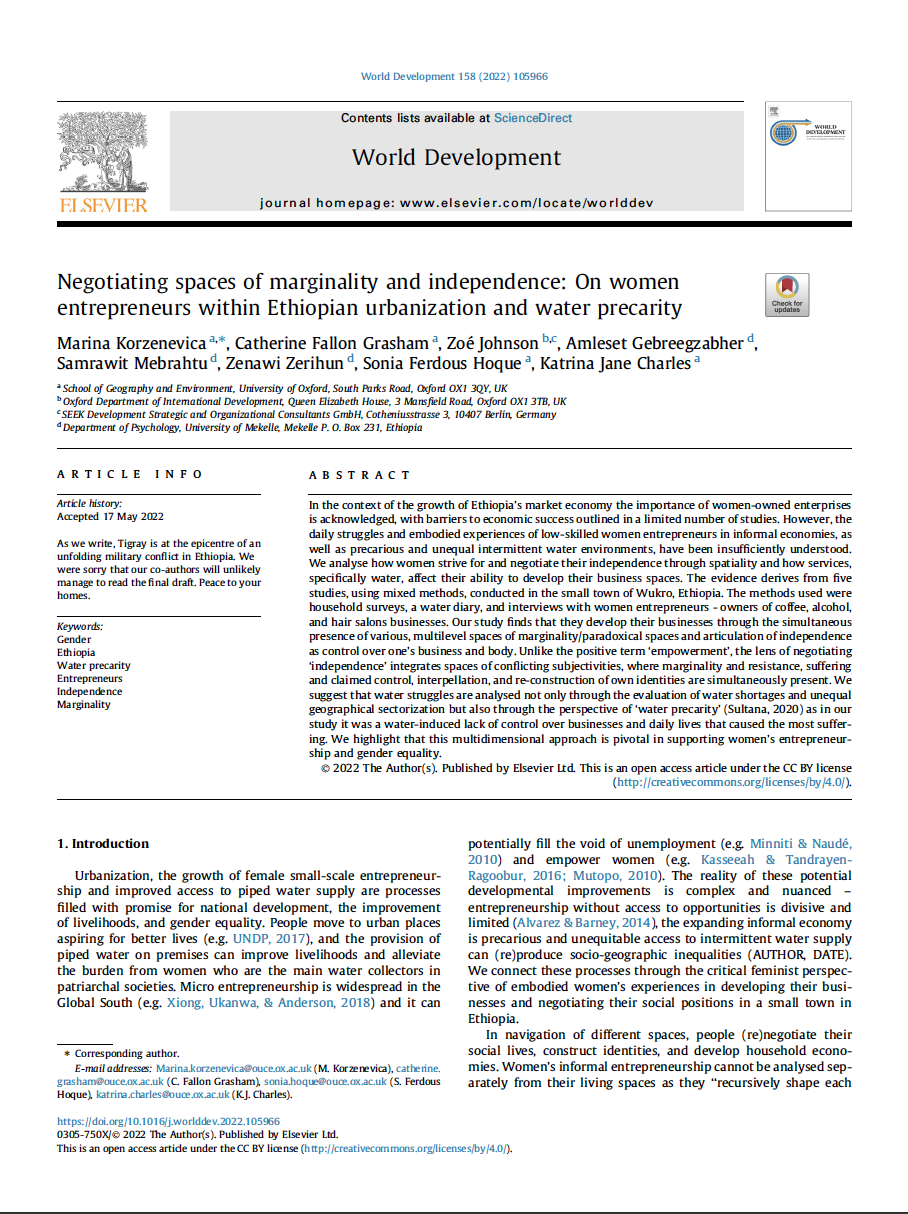Authors: Marina Korzenevica, Catherine F. Grasham, Zoé Johnson, Amleset Gebreegzabher, Samrawit Mebrahtu, Zenawi Zerihun, Sonia F. Hoque, & Katrina J. Charles.
In the context of the growth of Ethiopia’s market economy the importance of women-owned enterprises is acknowledged, with barriers to economic success outlined in a limited number of studies. However, the daily struggles and embodied experiences of low-skilled women entrepreneurs in informal economies, as well as precarious and unequal intermittent water environments, have been insufficiently understood. We analyse how women strive for and negotiate their independence through spatiality and how services, specifically water, affect their ability to develop their business spaces. The evidence derives from five studies, using mixed methods, conducted in the small town of Wukro, Ethiopia. The methods used were household surveys, a water diary, and interviews with women entrepreneurs – owners of coffee, alcohol, and hair salons businesses. Our study finds that they develop their businesses through the simultaneous presence of various, multilevel spaces of marginality/paradoxical spaces and articulation of independence as control over one’s business and body. Unlike the positive term ‘empowerment’, the lens of negotiating ‘independence’ integrates spaces of conflicting subjectivities, where marginality and resistance, suffering and claimed control, interpellation, and re-construction of own identities are simultaneously present. We suggest that water struggles are analysed not only through the evaluation of water shortages and unequal geographical sectorization but also through the perspective of ‘water precarity’ (Sultana, 2020) as in our study it was a water-induced lack of control over businesses and daily lives that caused the most suffering. We highlight that this multidimensional approach is pivotal in supporting women’s entrepreneurship and gender equality.

